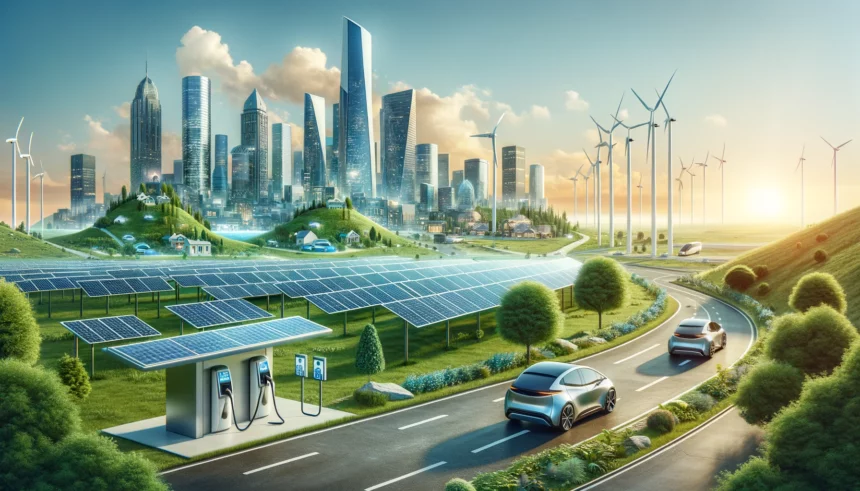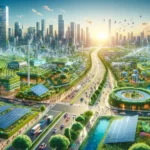Climate change is a complex challenge, but it also presents a unique opportunity to innovate and improve the way we interact with our environment. From renewable energy sources to electric vehicles and the development of smart cities, we are witnessing an era where technology serves as both a contributor to climate issues and a crucial part of the solution. Let’s dive into how these technologies are paving the way for a sustainable future.
Embracing Renewable Energy
The Shift Away from Fossil Fuels
Traditionally, our reliance on fossil fuels has been a major cause of greenhouse gas emissions. However, renewable energy sources like solar, wind, and geothermal power are changing the game:
- Solar Power: Improvements in solar panel efficiency mean they can convert more sunlight into energy than ever before.
- Wind Power: Advances in turbine technology have enabled them to generate more power even at lower wind speeds.
- Cost Effectiveness: These technologies are not just environmentally friendly; they’re also becoming more cost-competitive, making renewable energy a practical choice for more people and businesses.
Government Incentives
To support this shift, various government policies play a crucial role:
- Feed-in Tariffs: These provide financial benefits to those generating their own energy via renewables.
- R&D Investments: Increased funding for research is crucial for developing new and improved storage technologies that make renewable energy more reliable.
Revolutionizing Transportation with Electric Vehicles
Advances in Electric Vehicles (EVs)
The transportation sector is a significant emissions contributor, but EVs are setting the stage for a major transformation:
- Better Batteries: The range of EV batteries is expanding, while their charging times decrease.
- Infrastructure Development: The growth of public and private charging stations is helping to alleviate range anxiety.
Encouraging EV Adoption
To promote the use of electric vehicles, policy measures include:
- Tax Breaks and Rebates: These financial incentives make EVs more attractive compared to traditional vehicles.
- Regulatory Measures: Some regions are moving towards banning the sale of new gasoline-powered vehicles, pushing the market towards electric options.
Building Smart Cities for the Future
Technology in Urban Development
Smart cities use technology to enhance resource efficiency and sustainability:
- Smart Grids: These systems manage energy distribution more efficiently, reducing waste and improving reliability.
- Traffic Management: Innovative systems reduce road congestion, lowering emissions from idling vehicles.
- Smart Buildings: These structures use technology to monitor and adjust energy usage in real time, drastically cutting down on waste.
Urban Planning and Green Spaces
Integrating technology with thoughtful urban planning that includes green spaces and sustainable transport options creates healthier, more livable urban environments.
As we continue to face the impacts of climate change, the role of technology becomes increasingly significant. By integrating cutting-edge renewable energy systems, pushing forward with electric vehicle adoption, and developing smarter cities, we can foster a more sustainable future. These technological solutions, supported by effective climate policies, are key to our efforts to mitigate environmental impacts and ensure a healthier planet for future generations.
















